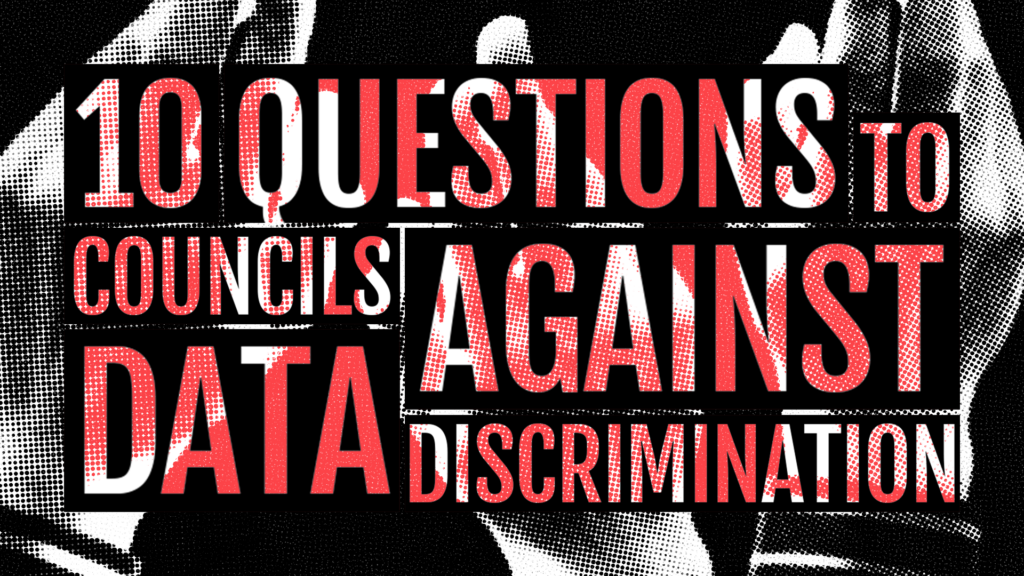Councils against data discrimination
Council’s should use technology to support justice, rights and freedoms.

Data discrimination occurs when individuals or groups are treated unfairly because of characteristics or traits identified through the collection and analysis of their data. This can take many forms, such as denying individuals access to certain services or opportunities because of their race, gender, age, or other personal characteristics.
By ensuring that all individuals are treated equally and given equal opportunities, councils can help to create a more inclusive and just society. Additionally, councils have a duty to protect the rights and freedoms of their citizens, and data discrimination can violate these rights. By taking action against data discrimination, councils can help to safeguard the well-being and dignity of all members of their community.
10 Questions for Councillors to ensure your Council isn’t committing data discrimination
Download the guideStopping Data Discrimination Council Motion
View the Council MotionORG has prepared a model Council motion that Councillors can propose at Council meetings. We have also suggested 10 questions that Councillors might want to ask officers in their authority to ensure it isn’t committing data discrimination.
If you want to help us tackle data discrimination, you can write to your Councillor using the link below.
Stop Data Discrimination

